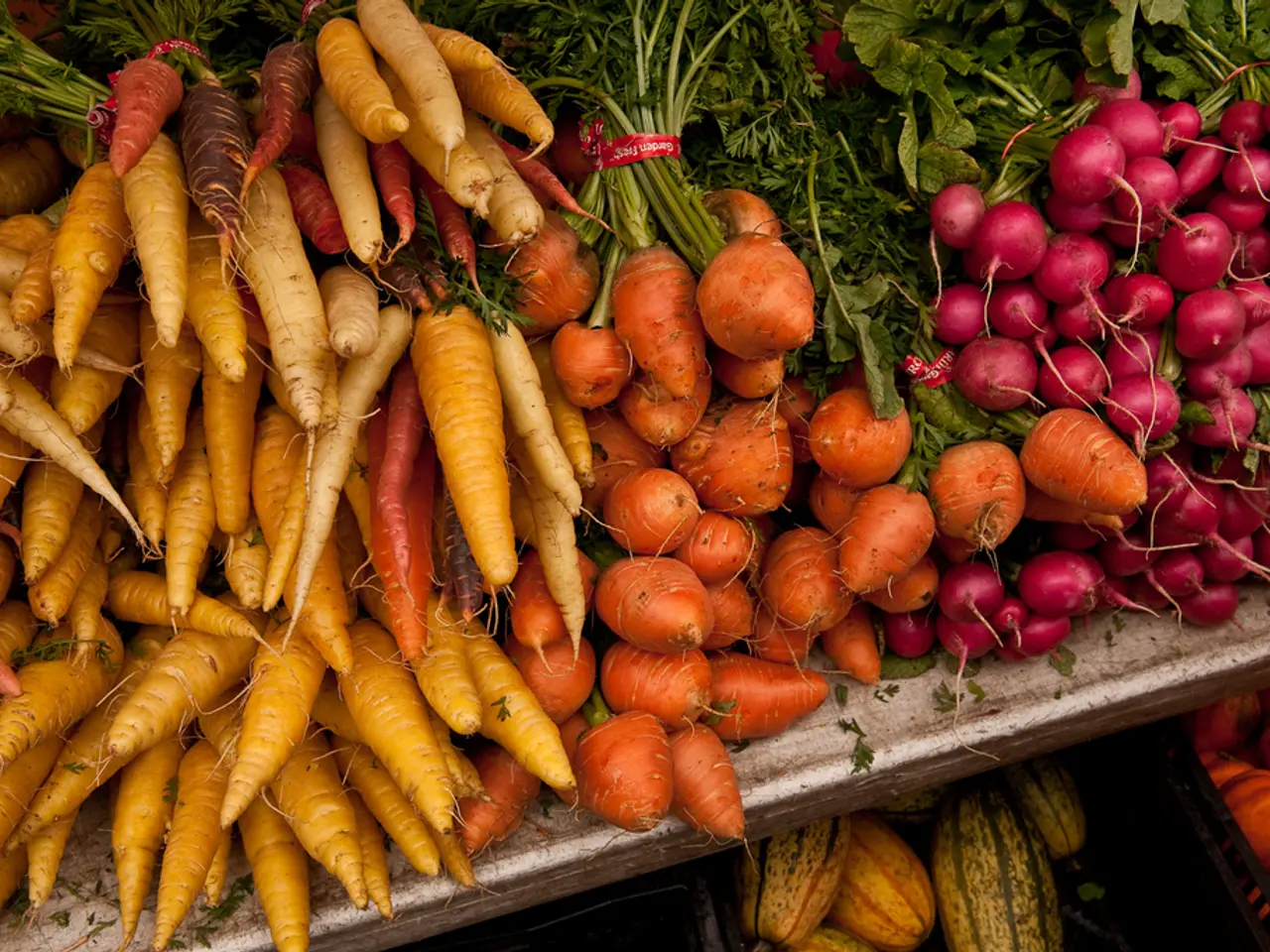Prefer to cultivate vegetables during the cold months? These winter vegetables are perfect for an extended growing season
No-Dig Winter Gardening: Charles Dowding's Top Picks for a Productive Somerset Garden
In the heart of winter, the garden need not be barren. Charles Dowding, a renowned gardening expert, offers insights on cultivating a thriving no-dig winter garden in Somerset. His approach emphasizes minimal soil disturbance, a rich soil life, and careful succession planting for continuous cropping with few weeds.
Spinach, a versatile leafy green, can be planted after summer crops have finished. It thrives in the no-dig soil, supporting healthy roots and soil life. The plant can regrow through autumn, survive mild winters, and continue cropping in spring.
Kale is another winter staple. Sown in late summer or early autumn, it grows well over autumn into winter, producing nutritious leaves. Kale can be grown outdoors or in protected conditions like a polytunnel for longer cropping.
Overwintering onions are a great addition to the no-dig winter garden. Sown for harvest in late spring and early summer next year, they fill the gap when main crop onions have been used up and provide a fresh onion crop.
Hardy herbs like parsley can also be sown in late summer in containers to protect them from frost and extend availability into winter.
Early weeding is crucial for maintaining weed-free beds with undisturbed and well-structured soil below. If weeds are thick, it's wise to mulch with cardboard.
For a colourful addition to your winter garden, consider Purple sprouting broccoli. Choose a variety to mature from late winter to mid-spring, according to preference. The plants should be spaced 60cm apart.
Winter squash can be sown mid-April undercover, planted by the end of May, and harvested from mid-September once fruits are full colour and have hard skins. 'Uchiki Kuri', a tasty red squash, is best suited for cooler areas.
Leeks can be grown from multi-sown modules or individual plants sown early April and planted by end of June. Winter-hardy varieties like 'Bandit', 'Husky' and 'Apollo' are excellent choices.
It's important to keep soil fertile when growing winter vegetables. This can be achieved by spreading a 3-5cm layer of well-composted organic matter on the surface. After winter frosts, the soil should have a friable tilth good for plantings and be capable of slowly releasing nutrients through the year.
Lastly, it's wise to grow a few extra vegetables to fill unexpected gaps due to weather, failed sowings, and pests. With these tips in mind, your no-dig winter garden in Somerset is sure to thrive.
[1] Dowding, C. (2020). No-Dig Organic Home and Community Gardening. Green Books. [3] Dowding, C. (2017). The No-Dig Garden: A Guide to Year-Round Organic Growing. Green Books.
- Charles Dowding's no-dig winter garden in Somerset benefits from planting spinach and kale, which can grow during the winter months and provide fresh produce.
- Overwintering onions can be sown for late spring harvest, filling the gap when main crop onions have been used up, and hardy herbs like parsley can be sown in late summer to extend availability into winter.
- For a colourful addition, purple sprouting broccoli can be planted in winter gardens, and winter squash can be grown undercover for mid-September harvest in cooler areas.
- Leeks are excellent winter-hardy choices for the no-dig garden, and soil fertility can be sustained by adding a layer of well-composted organic matter.
- To maintain a weed-free bed, early weeding is crucial, and if weeds are thick, it's best to mulch with cardboard. With these tips, your no-dig winter garden is sure to thrive, as described in Dowding's books "No-Dig Organic Home and Community Gardening" and "The No-Dig Garden".




